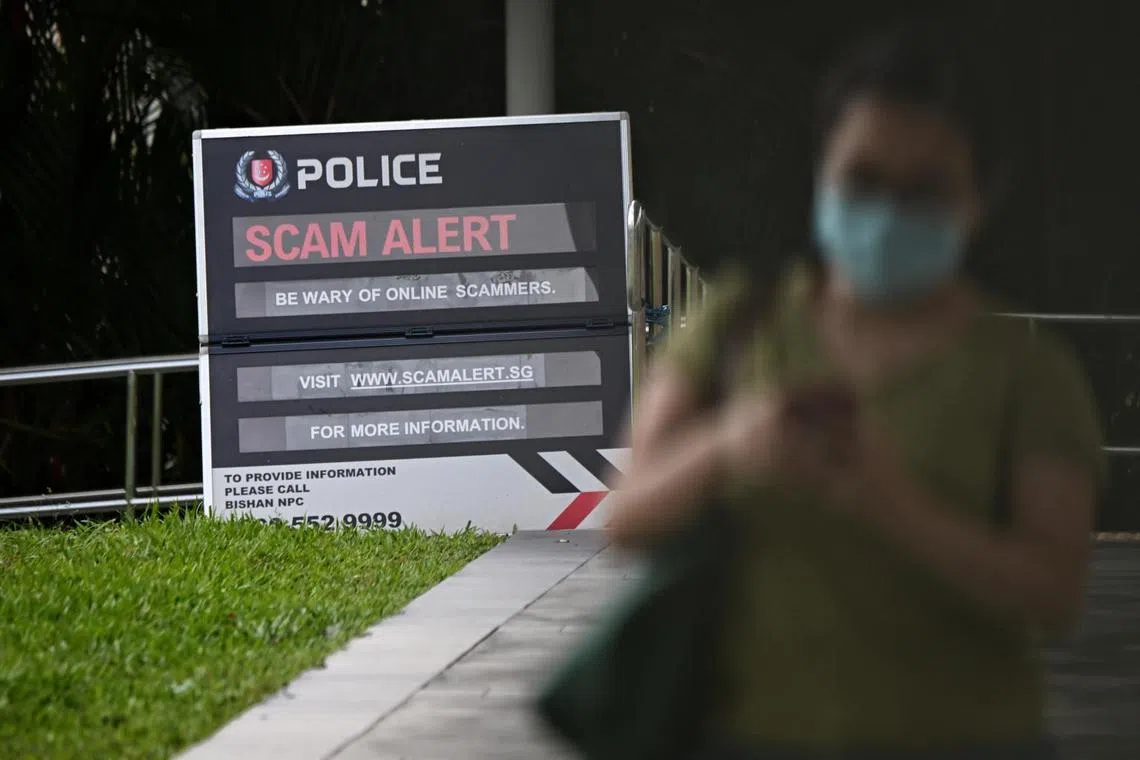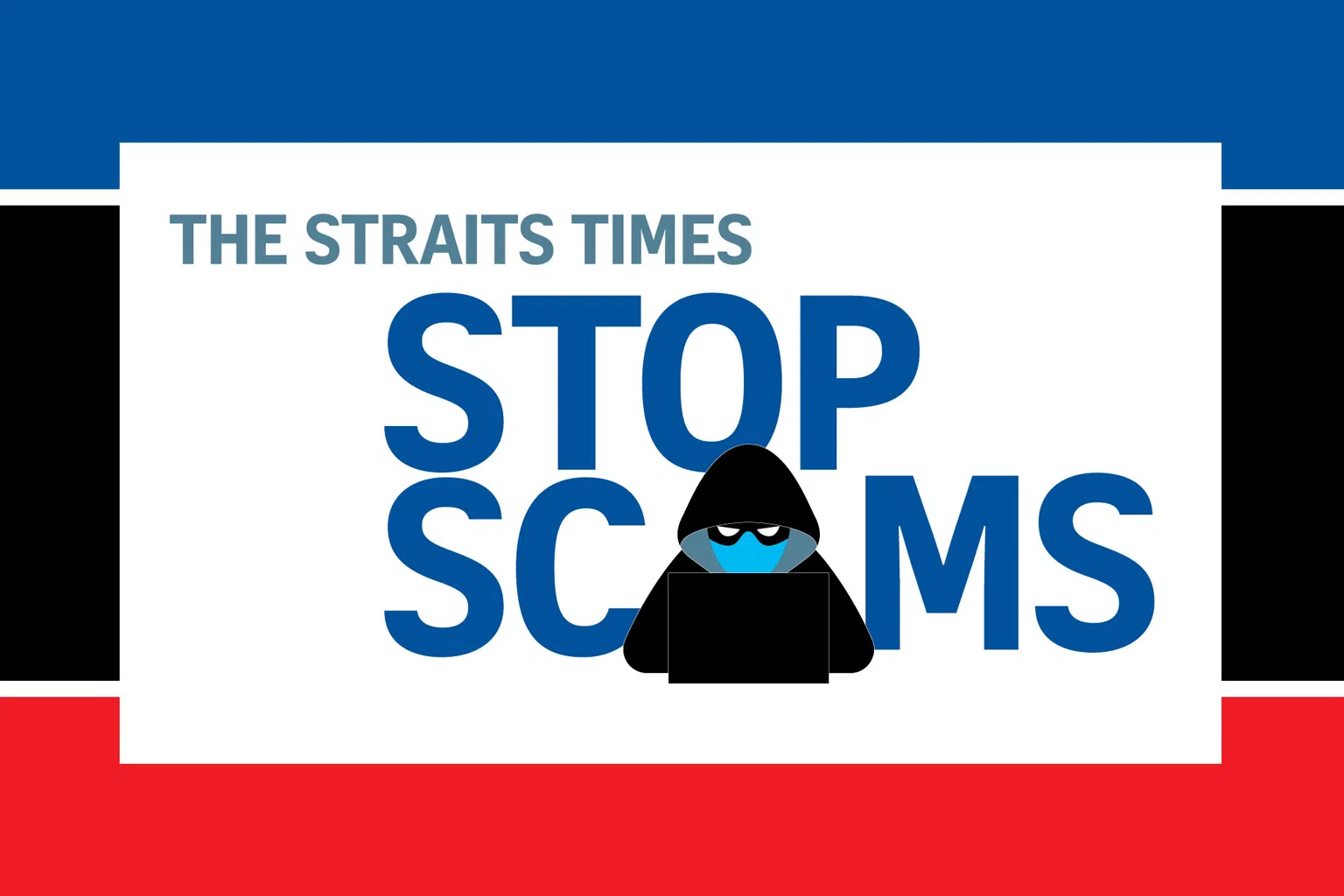321 individuals probed for involvement in scams that cost victims over $9.6 million
Sign up now: Get ST's newsletters delivered to your inbox

The suspects are being investigated over allegations of cheating, money laundering or providing payment services without a licence.
PHOTO: ST FILE
SINGAPORE - Police have continued their operations targeting scammers, launching investigations into 321 people aged between 16 and 72 for their roles in various ruses that saw victims lose over $9.6 million.
The suspects are believed to be involved in more than 998 cases, comprising mainly fake friend call scams, impersonation of government and Chinese officials, investment scams, e-commerce scams, job scams, Internet love scams and loan scams.
The two-week operation was conducted by officers from the Commercial Affairs Department and the seven police land divisions in mid-November.
The suspects – 197 men and 124 women – are being investigated over allegations of cheating, money laundering or providing payment services without a licence.
The police on Friday said they take a serious stance against any person who may be involved in scams.
“To avoid being an accomplice to crimes, members of the public should always reject requests by others to use your bank account or mobile lines as you will be held accountable if these are linked to crimes,” said the police.
Those found guilty of cheating can be jailed for up to 10 years and fined, while those convicted of money laundering can be jailed for up to 10 years and/or fined up to $500,000.
Those found guilty of carrying on a business to provide any type of payment service in Singapore without a licence can be jailed for up to three years and/or fined up to $125,000.
The police also warned of a resurgence of a scam variant that sees game account sellers duped into paying administrative fees to facilitate the sale of their gaming accounts via fake online platforms.
At least 21 victims have fallen prey since February, with total losses amounting to at least $86,000.
The police said that in this scam variant, scammers would approach victims via gaming or e-commerce platforms and express their interest in purchasing the victims’ gaming accounts.
Dubious URL links to seemingly reliable platforms, which facilitate the sale of gaming accounts, would then be sent. Once victims access the fake platform, they would be prompted to create an account with their bank account details, name and contact number.
The scammers would then claim that payment has been made to the victims’ account.
When the victims are unable to withdraw the money, they would be directed to a supposed customer service representative, who would inform the victims that the funds have been frozen due to errors in the registration process.
Victims would need to deposit more money into the platform for the existing funds to be unfrozen. Depositing more money can be done by transferring monies to bank accounts that are actually maintained by scammers.
Victims realised they were scammed only when they were unable to withdraw any funds from the platforms.
The police said established companies tend to have bank accounts maintained under their own names, and advised the public to avoid transferring funds to bank accounts maintained by individuals when dealing with companies.
They also reminded the public not to click on dubious URL links, and to not provide personal or bank account information on websites accessed by dubious links.




